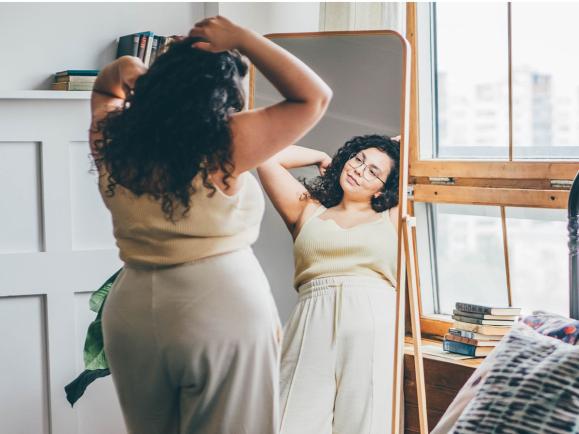
Romantic relationships, traveling, and making money are taking a backseat for many women. None of these are as important to women right now as learning about their own bodies.
A recent survey of 2,000 American women representing different generations asked participants about various topics to determine which have gained importance over the last five years.
The top areas of focus were understanding women’s health issues (59%) and feeling comfortable and confident in their bodies (58 percent).
Conducted by Talker Research for Intimina, the survey found that these priorities were consistent across generations, highlighting the significance women of all ages place on self-assurance and health.
Despite this emphasis, only 14 percent of women reported feeling extremely confident in their bodies. Meanwhile, 55 percent described themselves as feeling very (18 percent) or somewhat (36 percent) confident.
The survey explored not only women's confidence but also the effort required for them to fully embrace their womanhood.
The findings showed that younger generations have had to invest more effort; 25 percent of Gen Z women and 21 percent of millennials noted the need for a strong, conscious effort. In contrast, 18 percent of Gen Xers and just 9 percent of baby boomers have made such efforts.
“Today’s women prioritize something truly transformative: understanding and embracing their own bodies,” said Dunja Kokotovic, Intimina brand manager. “The survey results are clear: confidence and comfort in womanhood are valued more than traditional milestones like travel or financial success. Yet, the journey to that confidence can be challenging, especially for younger generations who’ve had to overcome societal pressures and embrace their womanhood fully consciously. This shift, seen across all ages, highlights a cultural change where self-awareness and empowerment are key, showing that true success starts with self-love and health.”
When asked if they are proud to be women, 89 percent of respondents said yes, with similar responses across all age groups.
Participants agreed that women face more obstacles than men (61 percent overall), including pressures related to body image (58 percent), workplace disadvantages (58 percent), and societal views on women’s personalities and gender roles (43 percent).
Women also identified sports (39 percent) and public safety (39 percent) as areas where they feel more disadvantaged than men.
More than half (55 percent) believe that the disadvantages women face have either remained the same (30 percent) or worsened (25 percent) over the past five years.
Looking to the future, 40 percent of women surveyed expressed concerns that the upcoming presidential administration, with Donald Trump assuming office in January 2025, could negatively influence perceptions of women’s bodies and self-image.
“Empowering women starts with creating a positive and understanding culture around their bodies and experiences,” said Kokotovic. “This means normalizing open conversations about women’s health, breaking down stigmas and championing self-confidence at every turn. By offering education, support, and respect, we can remove the barriers that hold women back. It’s not just a woman’s issue — it’s a collective responsibility. When we celebrate and advocate for women’s empowerment, we lay the groundwork for a more inclusive and equitable future for all.”
What's become most important to women in the past five years?
- Learning about my body and health topics - 59%
- Being comfortable in my body - 58%
- Making a lot of money - 48%
- Having a stable romantic relationship - 40%
- Going on adventures - 40%

